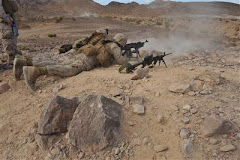Monday, July 22, 2013
Pivoting to the Pacific: Part I
For more than a decade United States has been preoccupied with fighting al-Qaeda and the rest of the global Jihadist movement I refer to as militant Islamism. But as we have been reminded recently with the Snowden Affair, the U.S. government wields vast resources and has been dealing with many national security issues all along. One of these issues is: how precisely should the U.S. relationship with China be evaluated? As President Bush put it more than ten years ago, China is a "strategic competitor." This was a good formulation because although it acknowledges that the U.S. and China have many divergent interests, it leaves room for the important trade relationship the two countries enjoy. So the U.S. and China are not enemies even though there is a lot of spying going on and increasingly, a ratcheting up of cyber attacks. Much of the Chinese hacking is the industrial and military espionage, but the Pentagon is concerned that the motives could turn more sinister in the future. For example, an attack on the Pacific Fleet or a move against Taiwan would likely start with a coordinated cyber attack before the first missile is fired. A nexus of economic and national security interests ensures that China will figure more and more prominently in the Pentagon's strategy in the coming decades. This shift of focus and resources has begun and will be addressed in part II.
Subscribe to:
Posts (Atom)





